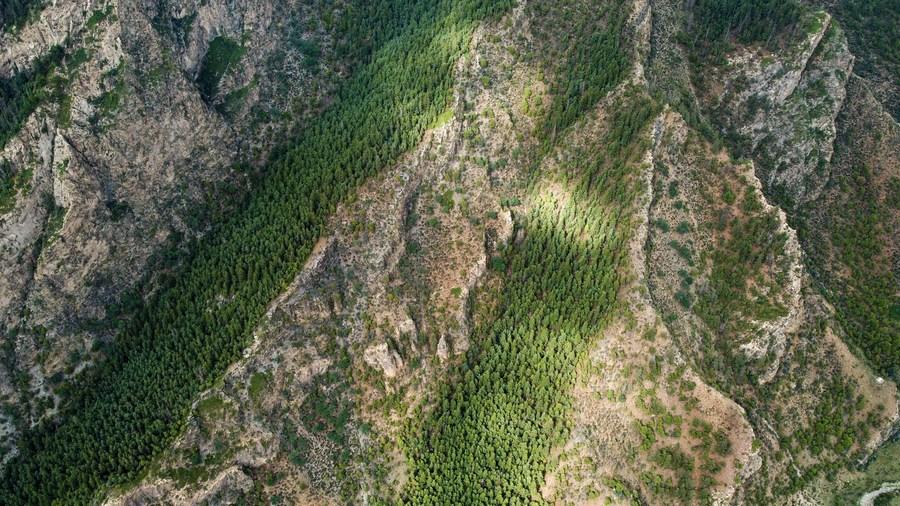

Aerial photo taken on July 11, 2022 shows a view of the Helan Mountain National Nature Reserve. [Photo/Xinhua]
With intensified efforts to promote
green transitions, China has topped the world in many fields concerning environmental conservation and low-carbon development, according to a white paper released on Thursday by the State Council Information Office.
In 2021, the country's forest coverage ratio reached 24 percent, and its forest stock volume grew to about 19.5 billion cubic meters, said the document titled China's Green Development in the New Era.
"Both figures represented 30 consecutive years of growth, making China the country with the highest growth in forest resources and the largest area of man-made forest," it said.
With land areas that have desertification and sandification both shrinking, China is the first country that has realized zero net land degradation, it added.
The average density of PM 2.5 particulate matter in the country's cities of prefecture level and above dropped from 46 micrograms per cubic meter in 2015 to 30 mcg / cubic m in 2021. "China is making the fastest progress in air quality improvement," it said.
With booming energy conservation and environmental protection industries, the white paper said, the country has been making consistent, remarkable progress in new energy development. In 2021, the output value of China's energy conservation and environmental protection industries exceeded 8 trillion yuan ($1.2 trillion), it said.
By the end of 2021, the installed capacity of renewable energy across the country was more than 1 billion kilowatts, accounting for 44.8 percent of China's overall installed capacity, it noted. The installed capacity of hydropower, wind power and photovoltaic power each exceeded 300 million kilowatts, all ranking the highest in the world.
Zhao Chenxin, deputy director of the National Development and Reform Commission, said the output value of the energy conservation and environmental protection industries have kept expanding by over 10 percent annually on average in recent years. "We now have the world's largest production scale for clean energy equipment," he said.
Zhao Yingmin, vice-minister of ecology and environment, said these achievements happened thanks to a systematic institutional system China established in the past 10 years to construct an ecological civilization, a concept promoted by President Xi Jinping for balanced and sustainable development that features harmonious coexistence between mankind and nature.
While ecological civilization has been inscribed into the country's Constitution, the number of laws on environmental protection in China is more than 30. "The law and regulation system for environmental and ecological protection has essentially come into form," Zhao said.
The vice-minister also noted a series of mechanisms China introduced to enhance environmental protection. High-profile central environmental inspection, for instance, has "effectively addressed a lot of prominent environmental problems".
A series of market mechanisms were introduced to motivate companies to promote green transition, he said, citing the national carbon trading program and tax cuts for environmentally friendly operations as examples.
